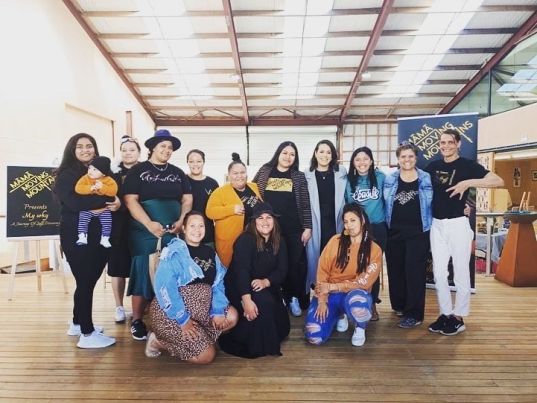Close to $1.5 million is going into nationwide projects to uplift generations of mothers, babies and whānau in the first 1,000 days of a child’s life.
The 18 projects include a ‘match-making’ service to pair-up isolated whānau with local aunties, the revival of centuries old Samoan sleep mats, Northland māmā moving mountains for the future and a series of wānanga on antenatal expertise from te ao Māori. The full list is available here.
“Robust evidence shows it is critical to invest in the first 1,000 days, so that every child gets the strongest start to life” says Tanya Radford, programme lead for First 1,000 Days at Te Hiringa Hauora | Health Promotion Agency.
“This fund supports the expansion of solutions to issues that have persisted for generations. That way more mothers and babies will get the support they need in those early days and eventually even more families, intergenerationally, will benefit.”
“We are getting behind the community knowledge that already exists, particularly if it’s a bit ‘out of the box’ and getting great results for whānau.”
Te Hiringa Hauora has partnered with the Department of Internal Affairs, and, with the support of the Lottery Grants Board, to co-fund six of the projects. All initiatives are community-driven solutions to meet community and whānau need. Grants range from $20,000 to $100,000 and total $1.46 million.
“We celebrate the magic that happens when communities are trusted to develop their own innovative solutions, when indigenous knowledge is valued and when different ways of thinking are embraced,” says Tanya.
Hākui is a Southern solution to struggles faced by isolated whānau. Many Māori families on Te Tai Poutini/West Coast do not whakapapa to the area. They say they miss connection and help. Hākui Manaaki connects them with hākui from the community to take an active interest in the family’s wellbeing. Hākui is the Ngāi Tahu term for a mother, aunty or grandmother. These experienced women will bring parenting know-how, cultural connection, aroha and local relationships. Their support may include joining whānau at appointments, cooking, meeting up for a cuppa or babysitting – whatever is needed to support the whānau.
Māmā Moving Mountains has been described as “an incubator for mothers’ dreams”. For over two years the organisation has run community networks in Northland to realise the goals of women who are at home, raising children. It has helped wāhine to set up small businesses, develop papakāinga, gain employment, buy a home or reclaim children from state care. It has also offered mental wellbeing support and personal, life and parenting skills. The grant will enable the network to expand further into Te Tai Tokerau and help more mothers live and enjoy their potential.
Fala pepe (baby mats) were once common throughout the Pacific, today they are a dying art. The skill, resources and time that went into their creation showed the dedication a mother or grandmother had for her baby. For this project Dr Sala Faasaulala Tagoilelagi-Leota is reviving cultural knowledge about these special mats and will guide Samoan mothers to reclaim the art. As they learn, the women will be immersed in cultural expertise, affirmation and connection. The project will also inform early childhood education models for Pasifika children and families.
“Just as the revival of wahakura (woven sleep bassinets) significantly reduced rates of Sudden Unexpected Death in Infancy among Māori children, reclaiming treasures of Samoan knowledge has the potential to do the same for babies and aiga of the future,” says Tanya Radford.
The Community Innovation Fund opened in February 2022. It invited applications from communities doing “bold new things” around pre-conception, contraception, maternal mental health, pregnancy or baby’s first two years. More than 170 applications were received.

